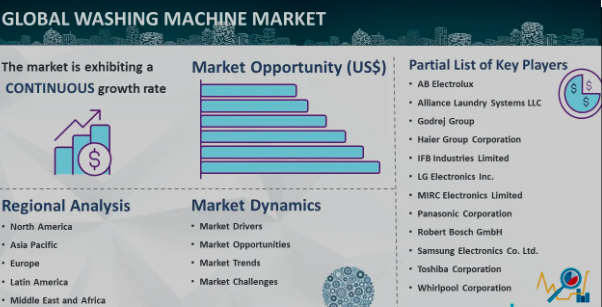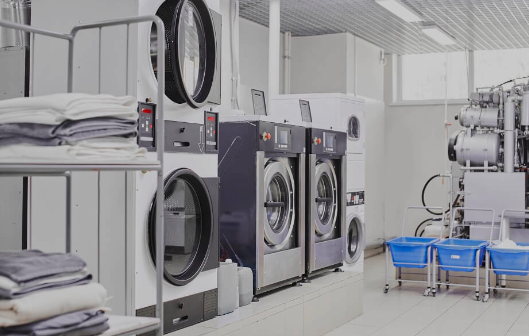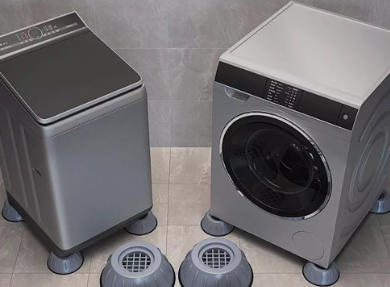Greatest Global Market Trends In Laundry Appliances

In recent years, the global market for laundry appliances has undergone significant transformations, driven by technological advancements, changing consumer preferences, and sustainability concerns. This comprehensive analysis delves into the key trends shaping the industry, providing insights into the dynamics that manufacturers, retailers, and consumers are navigating.
Technological Innovations Reshaping Laundry
Smart Appliances Revolution
The advent of smart technology has revolutionized the laundry appliance market. Smart washing machines and dryers equipped with IoT capabilities allow users to control and monitor their appliances remotely. Integration with virtual assistants and mobile apps has become commonplace, offering convenience and efficiency.
Energy-Efficient Solutions
Sustainability is a driving force in the appliance industry, leading to the development of energy-efficient laundry solutions. Manufacturers are prioritizing eco-friendly features, including low water consumption, energy-saving modes, and the use of recycled materials, aligning with the growing global focus on environmental responsibility.
AI and Automation in Laundry
Artificial intelligence (AI) is making its mark in the laundry sector. Automated features, such as load sensing, fabric recognition, and adaptive wash cycles, optimize performance and enhance user experience. These innovations not only improve efficiency but also cater to consumers seeking advanced, time-saving solutions.
Shifting Consumer Preferences
Demand for Compact and Stackable Appliances
Changing demographics and living spaces have fueled the demand for compact and stackable laundry appliances. Urbanization and the rise of smaller living spaces, such as apartments and condos, have led consumers to seek space-saving options without compromising on performance.
Customization and Personalization
Consumers are increasingly seeking personalized laundry experiences. Manufacturers are responding by offering customizable features, from wash cycle options to color choices. Personalization not only enhances user satisfaction but also addresses diverse laundry needs and preferences.
Integration of Design and Functionality
Aesthetics play a pivotal role in consumer decision-making. Laundry appliances are no longer just functional; they are becoming design elements in homes. Manufacturers are incorporating stylish designs, color options, and sleek finishes to appeal to consumers who prioritize both form and function.
Global Market Dynamics
Emerging Markets and Opportunities
The laundry appliance market is witnessing substantial growth in emerging economies. Rising disposable incomes, urbanization, and changing lifestyles contribute to increased demand in regions such as Asia-Pacific, Latin America, and Africa. Manufacturers are adapting strategies to tap into these burgeoning markets.
E-commerce Boom in Appliance Retail
The surge in online shopping has impacted the distribution channels for laundry appliances. E-commerce platforms are becoming increasingly popular for appliance purchases, providing consumers with a wide range of options, competitive pricing, and the convenience of doorstep delivery. Traditional brick-and-mortar retailers are adjusting their strategies to compete in the digital space.
Impact of Global Events on Supply Chain
The laundry appliance industry is not immune to global events that influence supply chains. The COVID-19 pandemic exposed vulnerabilities, emphasizing the importance of resilient supply chain management. Manufacturers are reevaluating their supply chain strategies to mitigate risks and ensure the uninterrupted flow of products to meet growing demand.
Future Outlook and Challenges
Sustainable Practices as a Standard
The laundry appliance industry is expected to witness a paradigm shift towards sustainability. Manufacturers will likely adopt circular economy principles, emphasizing product longevity, recyclability, and reduced environmental impact. Governments and industry associations are likely to introduce more stringent regulations to promote sustainable practices.
Integration of Advanced Materials
Advancements in material science will play a crucial role in shaping the future of laundry appliances. Manufacturers may increasingly adopt innovative materials that offer durability, energy efficiency, and improved performance. Nanotechnology and bio-based materials are anticipated to gain prominence in the development of next-generation laundry appliances.
Challenges in Adoption of New Technologies
While technological innovations present opportunities, they also pose challenges. The adoption of smart technologies, AI, and automation may face resistance from certain consumer segments due to concerns about privacy, cybersecurity, and the complexity of operation. Manufacturers will need to address these challenges through education, transparent communication, and user-friendly interfaces.
Conclusion
As the global market for laundry appliances evolves, the industry is witnessing a convergence of technological innovation, shifting consumer preferences, and dynamic market dynamics. Stakeholders in the laundry appliance sector must stay attuned to these trends to adapt, thrive, and contribute to a sustainable and technologically advanced future.




